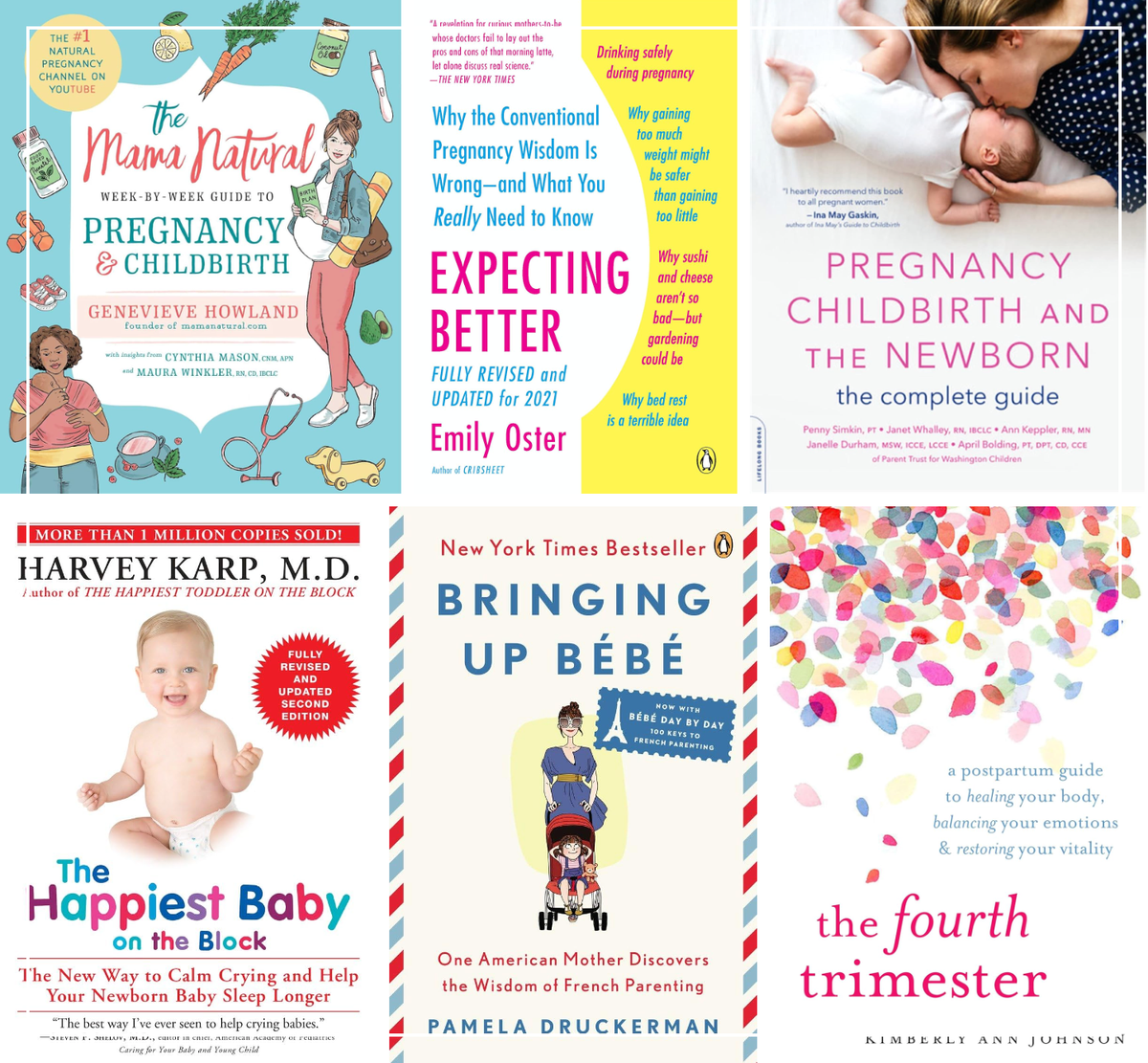What Causes Autism During Pregnancy? Understanding the Factors and Research
Learn how to maintain a healthy pregnancy with comprehensive prenatal care. From regular check-ups and balanced nutrition to managing stress and avoiding harmful substances, discover key steps for a healthy pregnancy journey.

Autism Spectrum Disorder (ASD) is a developmental condition that affects communication, behavior, and social interaction. While the exact causes of autism are still not fully understood, research has shown that a combination of genetic and environmental factors during pregnancy may play a role in its development.
Parents and expecting mothers often wonder if anything during pregnancy could contribute to autism, and while there are many theories, it’s important to understand the complex nature of this condition. In this article, we will explore the current scientific understanding of what causes autism during pregnancy, the risk factors, and how you can ensure a healthy pregnancy.
Table of Contents
- What is Autism Spectrum Disorder (ASD)?
- Understanding Genetic Factors
- Environmental Risk Factors During Pregnancy
- The Role of Prenatal Stress
- Can Autism Be Prevented During Pregnancy?
- Conclusion: Supporting a Healthy Pregnancy
What is Autism Spectrum Disorder (ASD)?
Autism Spectrum Disorder (ASD) is a complex neurodevelopmental condition that affects individuals differently. Symptoms typically appear in early childhood and include challenges with communication, repetitive behaviors, and difficulty with social interactions. Some individuals with ASD may also have sensory sensitivities or unusual interests in specific activities.
The Centers for Disease Control and Prevention (CDC) estimates that around 1 in 36 children in the U.S. are diagnosed with ASD. Research has shown that ASD begins early in brain development, with many factors potentially influencing the onset of symptoms. However, it’s important to note that autism is not caused by any one factor but rather a combination of genetic, environmental, and possibly prenatal influences.
Understanding Genetic Factors
Genetics play a significant role in the development of autism. Studies have shown that ASD tends to run in families, and researchers have identified several genes that may increase the risk of autism. According to research from the National Institute of Neurological Disorders and Stroke (NINDS), variations or mutations in specific genes are linked to autism.
Key Genetic Insights:
- Heritability: Autism has a strong genetic component, with heritability estimates ranging from 40% to 90%, depending on the study.
- Gene Mutations: Mutations in genes related to brain development, such as the SHANK3 and NRXN1 genes, are associated with an increased risk of autism.
- Siblings and Autism Risk: If one child in a family is diagnosed with ASD, there is a higher likelihood that a sibling may also be diagnosed.
While genes provide a biological foundation for autism, they do not tell the whole story. Environmental factors during pregnancy can interact with genetic predispositions to influence the development of ASD.
Book Reference: For an in-depth exploration of the role of genetics in autism, check out the autistic brain by Temple Grandin.
The Importance of Good Prenatal Care
Prenatal care is essential for ensuring a healthy pregnancy and giving your baby the best possible start in life. It involves regular medical check-ups, balanced nutrition, exercise, mental health care, and awareness of environmental factors that can impact both the mother and baby. Good prenatal care helps detect potential issues early and provides mothers with guidance on how to reduce risk factors, including those related to autism and other developmental disorders.
Key Elements of Good Prenatal Care:
- Regular Prenatal VisitsTip: Keep a list of questions and concerns for your doctor to address during these visits, including topics like nutrition, medications, and physical activity.
- Early and Consistent Care: It’s crucial to schedule your first prenatal visit as soon as you know you're pregnant. Regular visits, typically once a month in the first two trimesters and more frequently in the third trimester, help monitor your health and your baby’s development.
- Routine Screenings: During prenatal visits, your healthcare provider will perform routine tests to check for conditions like gestational diabetes, high blood pressure, and potential infections. Monitoring these health markers can prevent complications that could affect both mother and baby.
- Ultrasounds: Ultrasounds are essential tools to monitor fetal development and can detect abnormalities early on. Your provider will schedule these at various points during your pregnancy to ensure your baby is growing properly.

- Balanced Nutrition and Supplements Proper nutrition is one of the most critical components of good prenatal care. A healthy, well-balanced diet not only supports your own body’s needs but also ensures your baby gets the nutrients necessary for growth and development, including brain development.Book Reference: For a detailed guide on nutrition during pregnancy, check out real food for pregnancy by Lily Nichols, which offers evidence-based nutrition recommendations.
- Folic Acid: Adequate intake of folic acid is vital in preventing neural tube defects and supporting brain development. The Centers for Disease Control and Prevention (CDC) recommends pregnant women take 400–800 micrograms of folic acid daily.
- Iron: During pregnancy, your blood volume increases, and iron helps produce the extra blood your baby needs. Low iron levels can lead to anemia, which can increase the risk of premature birth or low birth weight.
- Calcium and Vitamin D: Calcium supports your baby’s bone development, while vitamin D helps your body absorb calcium. Both are essential for preventing conditions like rickets or bone deformities.
- Omega-3 Fatty Acids: Omega-3s, particularly DHA (docosahexaenoic acid), are essential for fetal brain development. Foods rich in omega-3s include fatty fish like salmon, walnuts, and flaxseeds. You can also take prenatal supplements containing DHA.

- Managing Pregnancy-Related Conditions Certain conditions that develop during pregnancy, such as gestational diabetes and high blood pressure, can have significant impacts on both maternal and fetal health. Managing these conditions is key to ensuring a healthy pregnancy.Tip: If you’re diagnosed with either condition, it’s important to follow your provider’s advice on medication, diet, and physical activity.
- Gestational Diabetes: If diagnosed with gestational diabetes, it’s important to work with your healthcare provider to monitor blood sugar levels and maintain a healthy diet and exercise routine. Uncontrolled gestational diabetes can lead to larger birth weights, making delivery more complicated.
- Hypertension: High blood pressure during pregnancy, known as preeclampsia, can cause complications like preterm birth or low birth weight. Your provider will monitor your blood pressure closely and may prescribe medications or recommend lifestyle adjustments to control it.
- Physical Activity Staying active during pregnancy has numerous benefits, including promoting healthy weight gain, reducing the risk of gestational diabetes, and improving circulation. Regular exercise can also boost your mood, reduce pregnancy-related discomforts (like back pain), and help prepare your body for labor.Tip: Always consult your healthcare provider before starting any new exercise routine, especially if you have any pregnancy complications.
- Safe Exercises: Low-impact activities such as walking, swimming, prenatal yoga, and stationary cycling are great options for pregnant women. These exercises help maintain fitness without putting excessive strain on the body.
- Pelvic Floor Exercises: Kegel exercises strengthen the pelvic floor muscles, which can help during labor and reduce the risk of incontinence after birth.
- Mental Health and Stress Management Mental health is an essential part of prenatal care, as stress and anxiety during pregnancy can affect both you and your baby’s well-being. High levels of chronic stress have been associated with adverse pregnancy outcomes and may impact fetal brain development.Book Reference: For guidance on mental health during pregnancy, consider reading mindful birthing by Nancy Bardacke, which focuses on mindfulness techniques for pregnancy and childbirth.
- Mindfulness and Relaxation Techniques: Incorporating relaxation techniques like meditation, deep breathing, and prenatal yoga into your daily routine can help manage stress and promote emotional well-being.
- Therapy and Support: If you’re struggling with anxiety or depression during pregnancy, speaking with a mental health professional can be beneficial. Cognitive behavioral therapy (CBT) and support groups for pregnant women can provide coping mechanisms and emotional support.
- Avoiding Harmful Substances Protecting your baby’s development means avoiding substances and environmental toxins that could potentially cause harm during pregnancy.Environmental Toxins: Be mindful of potential exposure to environmental toxins such as lead, pesticides, and air pollution. Choose safe cleaning products, avoid exposure to secondhand smoke, and limit time spent in heavily polluted areas when possible.Book Reference: To learn more about avoiding environmental toxins, consider the environmental baby book by Sandra Steingraber, which explores how to create a safe environment for you and your baby.
- Alcohol and Smoking: Alcohol use during pregnancy is linked to fetal alcohol syndrome, which can cause developmental issues. Smoking increases the risk of preterm birth, low birth weight, and respiratory problems. Avoiding these substances is crucial for a healthy pregnancy.
- Caffeine: While moderate caffeine intake is generally considered safe, it’s recommended to limit caffeine consumption to 200 milligrams per day (about one 12-ounce cup of coffee) during pregnancy.
- Medications and Herbal Supplements: Always consult your healthcare provider before taking any medications or supplements during pregnancy. Some medications can interfere with fetal development or increase the risk of complications.

- Adequate Rest Pregnancy can be physically exhausting, especially in the third trimester. Ensuring you get plenty of rest is important for both you and your baby’s health.
- Sleep Hygiene: Try to maintain a regular sleep schedule, avoid heavy meals before bedtime, and create a calm sleep environment. Using pillows to support your growing belly can help you find a more comfortable sleeping position.
- Napping: If you find yourself more tired than usual, it’s okay to take naps during the day. Rest is essential for maintaining energy levels and supporting your body’s needs.
Environmental Risk Factors During Pregnancy
Several environmental factors during pregnancy have been identified as potential contributors to the risk of autism. While these factors do not cause autism outright, they may interact with genetic predispositions to increase the likelihood of developing ASD.
1. Advanced Parental Age
Research has consistently shown that advanced maternal or paternal age can increase the risk of having a child with autism. A study published in the journal Molecular Psychiatry found that parents over the age of 35 are more likely to have children with autism compared to younger parents.
- Maternal Age: Women over 35 have a slightly higher risk of having a child with autism.
- Paternal Age: Fathers over 40 may contribute to an increased risk, possibly due to changes in sperm quality with age.
2. Prenatal Exposure to Certain Medications
Certain medications taken during pregnancy have been linked to a higher risk of autism. One well-known example is the use of valproate (Depakote), a drug used to treat epilepsy and mood disorders. Research has shown that taking valproate during pregnancy can increase the risk of autism and other neurodevelopmental disorders.
- Antidepressants: Some studies suggest that the use of SSRIs (selective serotonin reuptake inhibitors) during pregnancy may be associated with a slightly increased risk of autism, though the research is still inconclusive.
If you are on medication and planning to become pregnant, it’s crucial to consult with your healthcare provider to discuss the risks and benefits of continuing medication during pregnancy.
Book Reference: For more about medication risks and pregnancy, consider reading expecting better by Emily Oster, which provides data-driven insights into pregnancy decisions.
3. Maternal Infections During Pregnancy
Infections during pregnancy, particularly those that trigger a strong immune response, have been linked to an increased risk of autism. A study from the National Institutes of Health (NIH) suggests that maternal infections such as the flu, rubella, or severe bacterial infections during the first trimester may increase the risk of neurodevelopmental disorders.
- Inflammation: Maternal immune activation during pregnancy can impact fetal brain development, potentially increasing the risk of autism.
4. Nutritional Deficiencies
Nutrition plays a crucial role in fetal development, and certain nutrient deficiencies during pregnancy may influence the risk of autism. Folic acid deficiency has been linked to an increased risk of autism, as folic acid is vital for brain development and neural tube formation.
- Folic Acid: Ensuring sufficient intake of folic acid before and during pregnancy may reduce the risk of neural tube defects and possibly autism.
- Vitamin D: Some studies suggest that low levels of vitamin D during pregnancy could be associated with an increased risk of autism, though more research is needed.
5. Gestational Diabetes and Obesity
Pregnancy complications such as gestational diabetes and maternal obesity have been associated with an increased risk of autism. Research published in the journal Pediatrics suggests that metabolic conditions during pregnancy may influence fetal brain development, increasing the likelihood of neurodevelopmental issues.
- Obesity and Diabetes: These conditions can lead to increased inflammation and insulin resistance, which may affect the developing brain.
6. Air Pollution and Environmental Toxins
Exposure to environmental toxins, such as air pollution, has been linked to an increased risk of autism. Studies show that women who live in areas with high levels of traffic-related air pollution during pregnancy may have a higher likelihood of giving birth to a child with autism.
- Heavy Metals: Exposure to heavy metals like lead, mercury, and other industrial pollutants during pregnancy can disrupt brain development and increase the risk of neurodevelopmental disorders.
Book Reference: For more information on environmental factors during pregnancy, check out the environmental baby book by Sandra Steingraber.
The Role of Prenatal Stress
Prenatal stress, particularly chronic stress, can impact fetal brain development and has been linked to an increased risk of autism. Research from the American Psychological Association (APA) suggests that high levels of stress during pregnancy can lead to hormonal changes that affect the developing brain.
- Cortisol Levels: Prolonged exposure to high levels of cortisol (the stress hormone) during pregnancy may influence brain structure and function in ways that increase the risk of autism.
- Stress Management: Learning relaxation techniques such as meditation, prenatal yoga, and mindfulness can help reduce stress levels during pregnancy.
Book Reference: Explore more about managing stress during pregnancy in mindful birthing by Nancy Bardacke.
Can Autism Be Prevented During Pregnancy?
While there is no guaranteed way to prevent autism, there are steps pregnant women can take to reduce certain risk factors:
- Maintain a Healthy Diet: Ensure adequate intake of essential nutrients like folic acid, vitamin D, and omega-3 fatty acids.
- Manage Health Conditions: Work with your healthcare provider to manage conditions like gestational diabetes and high blood pressure.
- Avoid Environmental Toxins: Minimize exposure to air pollution, pesticides, and other environmental toxins.
- Reduce Stress: Practice stress-reducing techniques like meditation, prenatal yoga, and deep breathing exercises.

Conclusion: Supporting a Healthy Pregnancy
Autism is a complex condition influenced by a combination of genetic and environmental factors. While there is no single cause of autism, understanding potential risk factors during pregnancy can help parents make informed decisions and support a healthy pregnancy.
By focusing on good prenatal care, managing health conditions, and reducing environmental risks, parents can create a supportive environment for their baby’s development. It’s important to remember that while certain factors may increase the risk of autism, many children born under similar conditions do not develop the disorder. Every pregnancy and child is unique, and there is no guaranteed way to predict or prevent autism.
Key Takeaways for a Healthy Pregnancy:
- Prenatal Care: Regular check-ups with your healthcare provider ensure that any potential issues during pregnancy are identified early and managed appropriately.
- Nutrition: Focus on a well-balanced diet rich in folic acid, vitamins, and essential nutrients to support fetal brain development.
- Environmental Awareness: Take steps to minimize exposure to harmful toxins such as air pollution, heavy metals, and certain medications during pregnancy.
- Stress Management: Incorporating relaxation techniques like meditation, mindfulness, or prenatal yoga can help manage stress and reduce potential impacts on fetal development.
Ultimately, being informed about the factors that influence the risk of autism during pregnancy can help expecting parents feel empowered and confident as they navigate the journey to parenthood.
Book Reference: If you're interested in learning more about autism and prenatal care, the autistic brain by Temple Grandin is an insightful resource that delves into both the scientific and personal aspects of living with autism.



